SOCIAL DYNAMICS OF WHITE-COLLAR CRIMES
By: Dr Abdul Razzak ph.D
-
Rs 850.00
- Rs 1,000.00
- 15%
You save Rs 150.00.
Due to constant currency fluctuation, prices are subject to change with or without notice.
This book introduces a dynamic perspective to study white-collar crime. It argues that as personal motives change over time, so too do organizational opportunities, and willingness for deviant behavior.
The work contends that the extent of white-collar crime is dependent on the extent of crime convenience perceived and preferred by potential offenders. It discusses how potential white-collar offenders expand organizational opportunities for financial crime over time. The dynamics are illustrated here by system dynamics models to capture cause and effect relationships. The book also presents a new structural model illustrating the elements of convenience theory along with a new dynamic model illustrating the evolution of white-collar crime. The practical aspects are illustrated with a number of case studies.
The book will be of interest to researchers, academics and professionals working in the areas of Criminal Justice, Criminology, Criminal Law and Business Studies.
This book introduces a dynamic perspective to study white-collar crime. It argues that as personal motives change over time, so too do organizational opportunities, and willingness for deviant behavior.
The work contends that the extent of white-collar crime is dependent on the extent of crime convenience perceived and preferred by potential offenders. It discusses how potential white-collar offenders expand organizational opportunities for financial crime over time. The dynamics are illustrated here by system dynamics models to capture cause and effect relationships. The book also presents a new structural model illustrating the elements of convenience theory along with a new dynamic model illustrating the evolution of white-collar crime. The practical aspects are illustrated with a number of case studies.
The book will be of interest to researchers, academics and professionals working in the areas of Criminal Justice, Criminology, Criminal Law and Business Studies.
SOCIAL DYNAMICS OF WHITE-COLLAR CRIMES
By: Dr Abdul Razzak ph.D
Rs 850.00 Rs 1,000.00 Ex Tax :Rs 850.00
Zubin Mehta: A Musical Journey (An Authorized Biography)
By: VOID - Bakhtiar K. Dadabhoy
Rs 892.50 Rs 1,050.00 Ex Tax :Rs 892.50
Police and Combat: Police Forensics (Radar)
By: Adam Sutherland
Rs 637.50 Rs 750.00 Ex Tax :Rs 637.50
What's Wrong with the United Nations and How to Fix It - (PB)
By: Thomas G. Weiss
Rs 3,820.75 Rs 4,495.00 Ex Tax :Rs 3,820.75
The Extinction Market : Wildlife Trafficking and How to Counter it
By: Vanda Felbab-Brown
Rs 2,630.75 Rs 3,095.00 Ex Tax :Rs 2,630.75
The Constitution of the Islamic Republic of Pakistan
By: Amjad Mahmood Butt
Rs 1,062.50 Rs 1,250.00 Ex Tax :Rs 1,062.50
Police and Combat: Police Forensics (Radar)
By: Adam Sutherland
Rs 637.50 Rs 750.00 Ex Tax :Rs 637.50
Charlie and the Cheesemonster - Paperback
By: Justin C. H. Birch
Rs 420.75 Rs 495.00 Ex Tax :Rs 420.75
World's Best Beers - 1000 Unmissable Brews from Portland to Prague
By: Ben McFarland
Rs 2,545.75 Rs 2,995.00 Ex Tax :Rs 2,545.75
Some Body to Love - A Family Story
By: Alexandra Heminsley
Rs 2,120.75 Rs 2,495.00 Ex Tax :Rs 2,120.75
The Terror Years From al Qaeda to the Islamic State -
By: Lawrence Wright
Rs 1,497.50 Rs 2,995.00 Ex Tax :Rs 1,497.50
Madame Bovary - (Penguin Classics Deluxe Edition)
By: Gustave Flaubert
Rs 2,785.50 Rs 3,095.00 Ex Tax :Rs 2,785.50
Magic Tree House 16: Olympic Challenge
By: Mary Pope Osborne
Rs 930.75 Rs 1,095.00 Ex Tax :Rs 930.75
Organize Your Team Today: The Mental Toughness Needed to Lead Highly Successful Teams - Hardcover
By: Tom Bartow
Rs 1,347.50 Rs 2,695.00 Ex Tax :Rs 1,347.50
Meet the Moomins! A Push, Pull and Slide Book
By: Macmillan
Rs 1,525.50 Rs 1,695.00 Ex Tax :Rs 1,525.50
The Penguin History of Modern Spain - 1898 to the Present
By: Nigel Townson
Rs 6,370.75 Rs 7,495.00 Ex Tax :Rs 6,370.75
One Hundred Years of Solitude
By: Gabriel Garcia Marquez
Rs 2,120.75 Rs 2,495.00 Ex Tax :Rs 2,120.75
Zubin Mehta: A Musical Journey (An Authorized Biography)
By: VOID - Bakhtiar K. Dadabhoy
Rs 892.50 Rs 1,050.00 Ex Tax :Rs 892.50
SOCIAL DYNAMICS OF WHITE-COLLAR CRIMES
By: Dr Abdul Razzak ph.D
Rs 850.00 Rs 1,000.00 Ex Tax :Rs 850.00
Police and Combat: Police Forensics (Radar)
By: Adam Sutherland
Rs 637.50 Rs 750.00 Ex Tax :Rs 637.50












 123-313x487.jpg?q6)
 123-120x187.jpg?q6)
-120x187.jpg?q6)









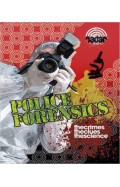
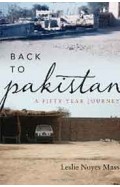
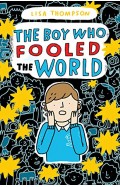
-120x187.jpg?q6)

-120x187.jpg?q6)
-120x187.jpg?q6)
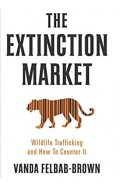
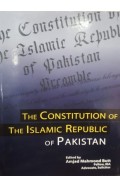
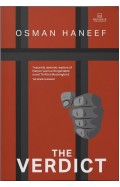





-120x187.jpg?q6)






















-120x187.jpg?q6)





-120x187.jpg?q6)